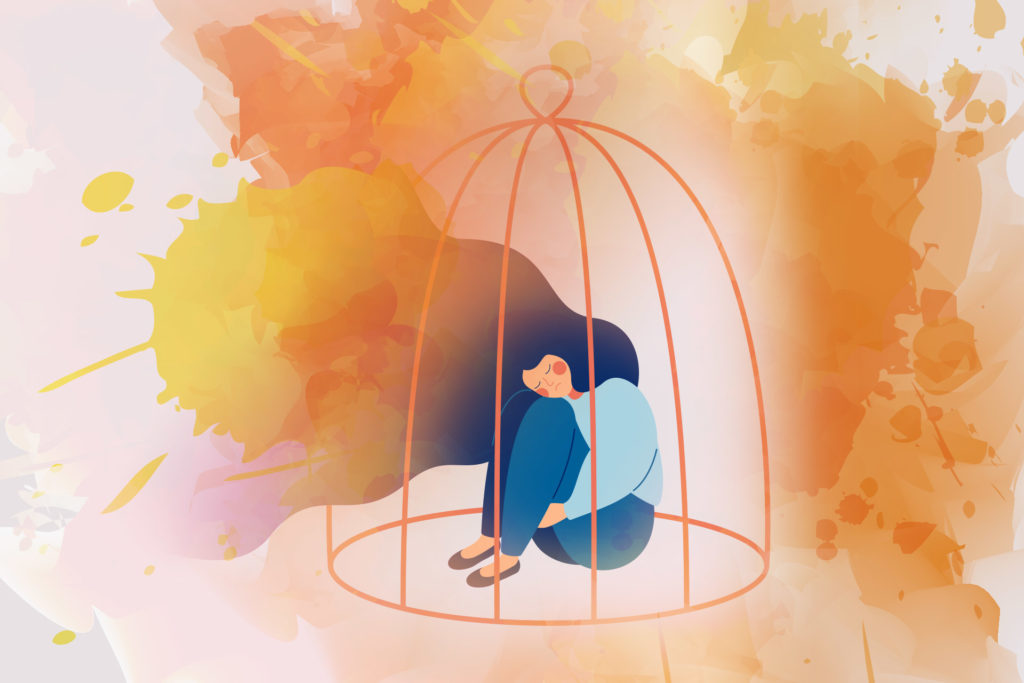Myths and prejudices
1- Why do women go back to their abusive spouses?
A. Because she likes to be abused
B. Because she is weak and lacks character
C. None of the above
Answer C. >> Explanations
Women stay with or return to their spouses for a variety of complex reasons. They believe in his/her promises, hope for changes in the person they love (because they love the person from the beginning of their relationship and sometimes feel like they are back), feel guilty about breaking up the home, are afraid of threats, do not have the social or economic resources to get by on their own, …
Any woman can one day experience an episode of domestic violence. Domestic violence always begins with a love story. Nobody is immune. Also the aggressor is manipulative and works so that his future victim cannot live without him/her. This person will be indispensable to her life. He/she also quickly finds his/her partner’s vulnerabilities and uses them to manipulate her.
Experiencing the cycle of violence repeatedly often makes abused women ambivalent, no longer knowing whether to leave or stay and/or return. They leave to see if they can survive outside the relationship and return to see if the relationship can change. This evolutionary process allows victims to eventually resolve their situation and get out of the cycle of violence.
2- Women who are victims of domestic violence are often emotionally dependent.
A. True
B. False
False. >> Explanations
These women live in a cycle of domestic violence where abuse, justification and honeymoon phases go hand in hand. As the abuse continues, the woman comes to see the violence as normal and even justified. Her tolerance threshold increases to the point where she no longer perceives the daily manifestations of control.
Emotional dependence is considered a mental health problem. If we say that she stays because she is dependent, we imply that she is the one with a problem, that she must change, that she must work on herself, … And unconsciously, we tell the woman that her spouse is right; that she is the problem, that she is not up to the task, … We hold her accountable for the violence she has experienced. We need to stay focused on the person responsible for violent behaviors and blame the right person.
No one deserves to be a victim of violence.
3- Women are as violent as men
A. True
B. False
False. >> Explanations
We hear more and more that women are as violent as men. This misperception is induced by data from population-based surveys concerning domestic violence, which indicates a similar percentage of victims between men and women. These do not show the frequency (therefore the use of a cycle), the intent (in order to dominate and humiliate the other, obtain gains, defense, …), the severity and the consequences of the violence suffered.
This belief is refuted by data from police and social services sources. They state that 80% of victims of domestic violence are women, and they have been for years.
4- You must be crazy, sick, or intoxicated to abuse your spouse.
A. True
B. False
False. >> Explanations
Domestic violence is a learned behavior, and the excuse of illness or addiction encourages the spouse to forgive the abuse but also to take care of the abuser. The partner chooses when to act and adopts strategies that are destabilizing for his/her spouse. So, using intoxication, stress, mental or physical health to justify one’s actions is easy. This allows him/her not to take accountability for his/her actions.
Source: Website: Shelter for women in the west of the island

